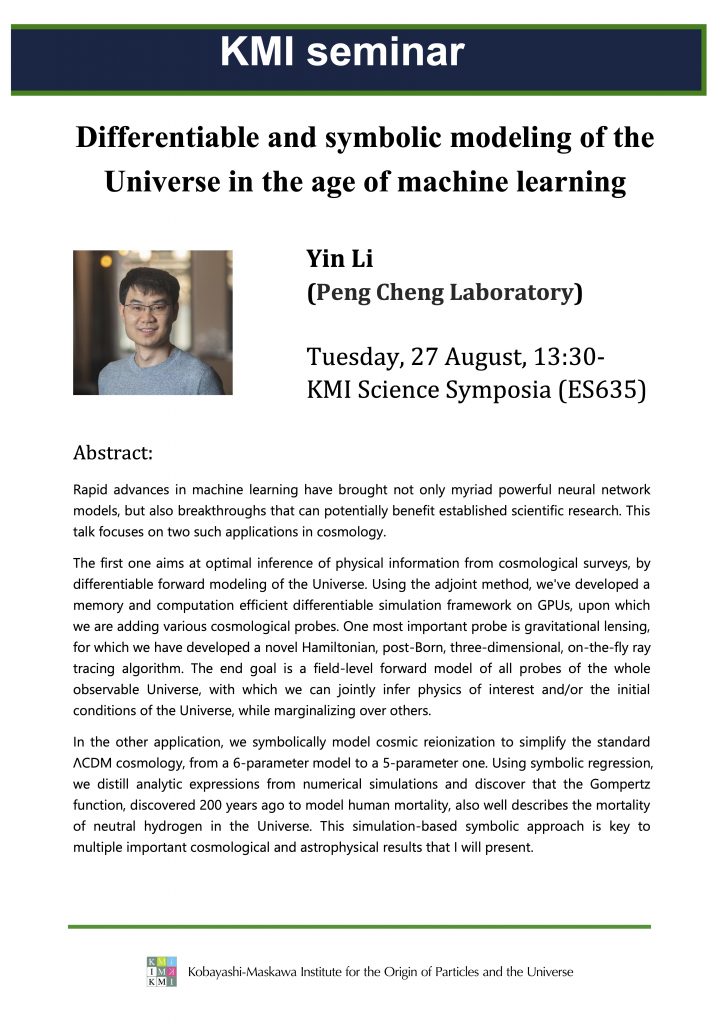Differentiable and symbolic modeling of the Universe in the age of machine learning
- Date: August 27th (Tue) 13:30 – 14:30
- Place: ES635
- Speaker: Yin Li (Peng Cheng Laboratory)
Abstract
Rapid advances in machine learning have brought not only myriad powerful neural network models, but also breakthroughs that can potentially benefit established scientific research. This talk focuses on two such applications in cosmology.
The first one aims at optimal inference of physical information from cosmological surveys, by differentiable forward modeling of the Universe. Using the adjoint method, we’ve developed a memory and computation efficient differentiable simulation framework on GPUs, upon which we are adding various cosmological probes. One most important probe is gravitational lensing, for which we have developed a novel Hamiltonian, post-Born, three-dimensional, on-the-fly ray tracing algorithm.
The end goal is a field-level forward model of all probes of the whole observable Universe, with which we can jointly infer physics of interest and/or the initial conditions of the Universe, while marginalizing over others.
In the other application, we symbolically model cosmic reionization to simplify the standard ΛCDM cosmology, from a 6-parameter model to a 5-parameter one. Using symbolic regression, we distill analytic expressions from numerical simulations and discover that the Gompertz function, discovered 200 years ago to model human mortality, also well describes the mortality of neutral hydrogen in the Universe.
This simulation-based symbolic approach is key to multiple important cosmological and astrophysical results that I will present.




